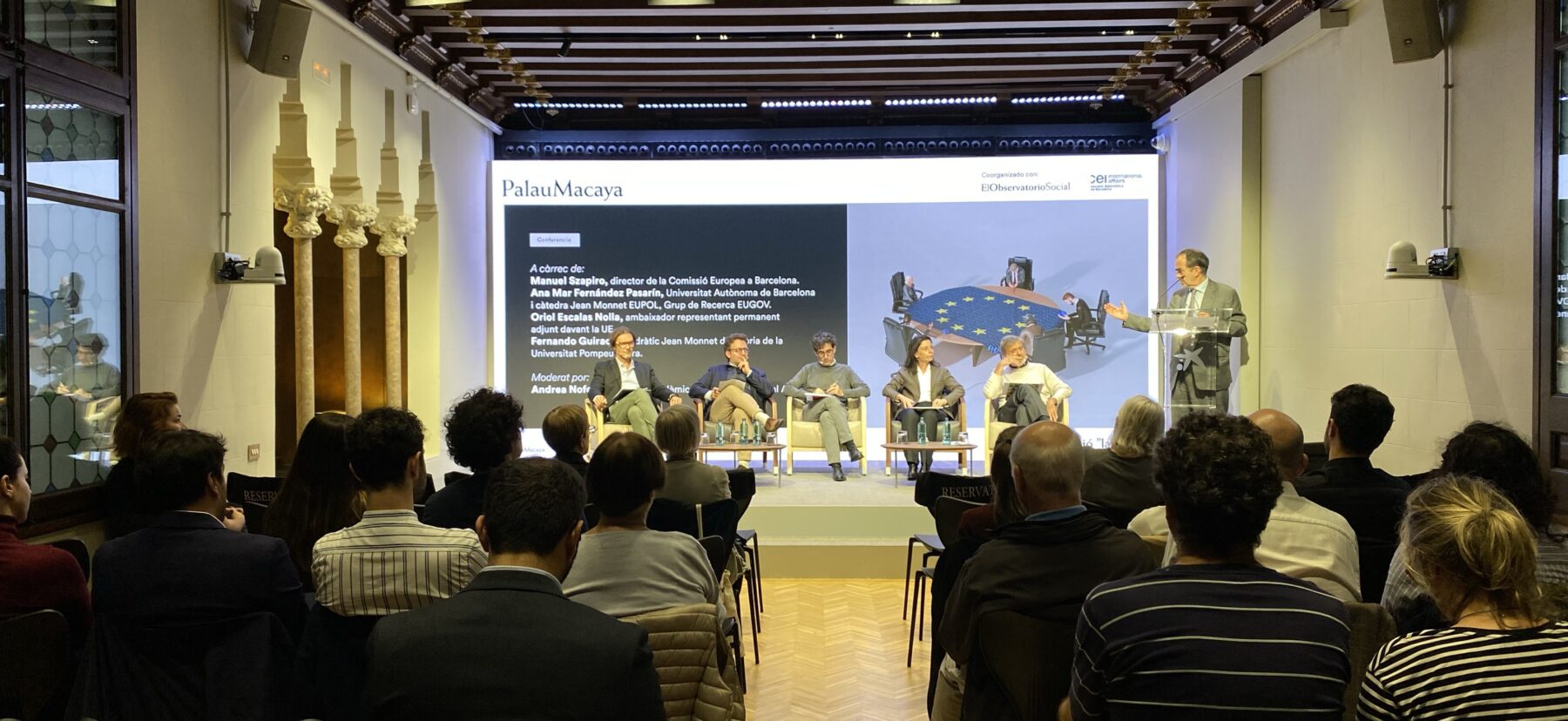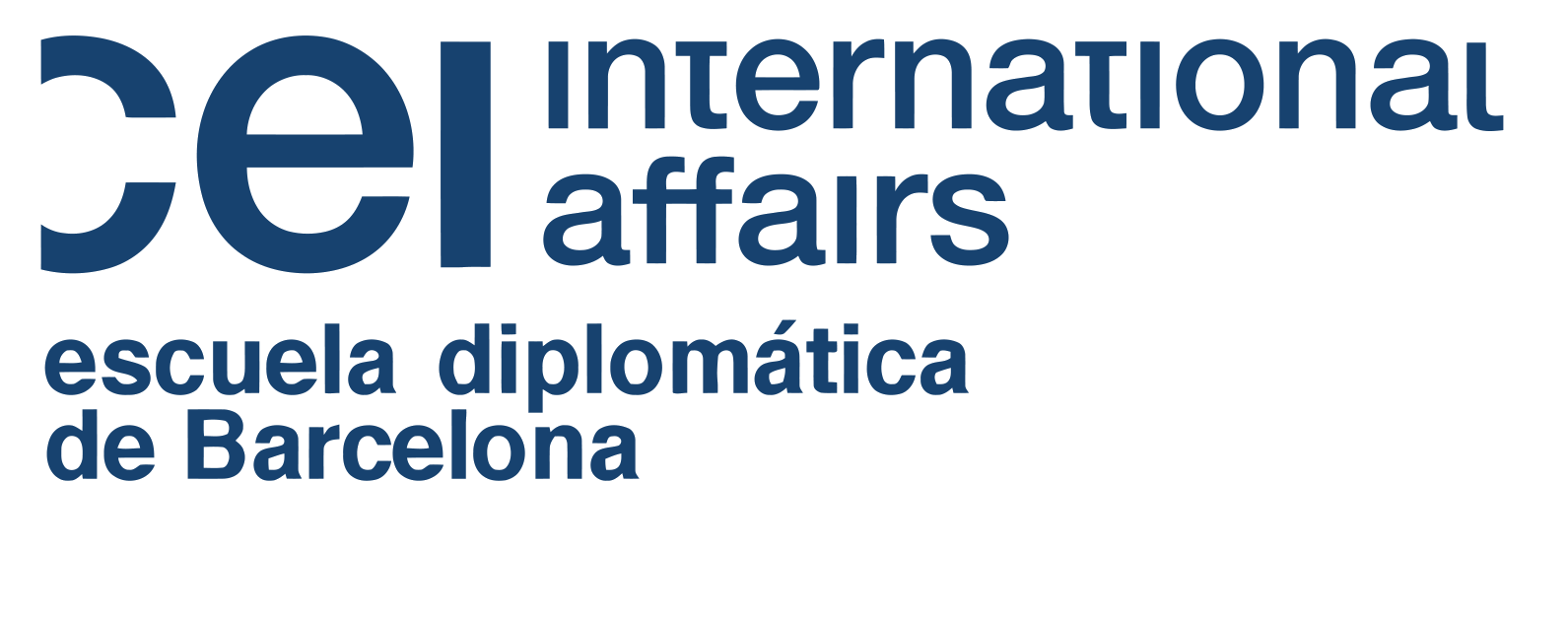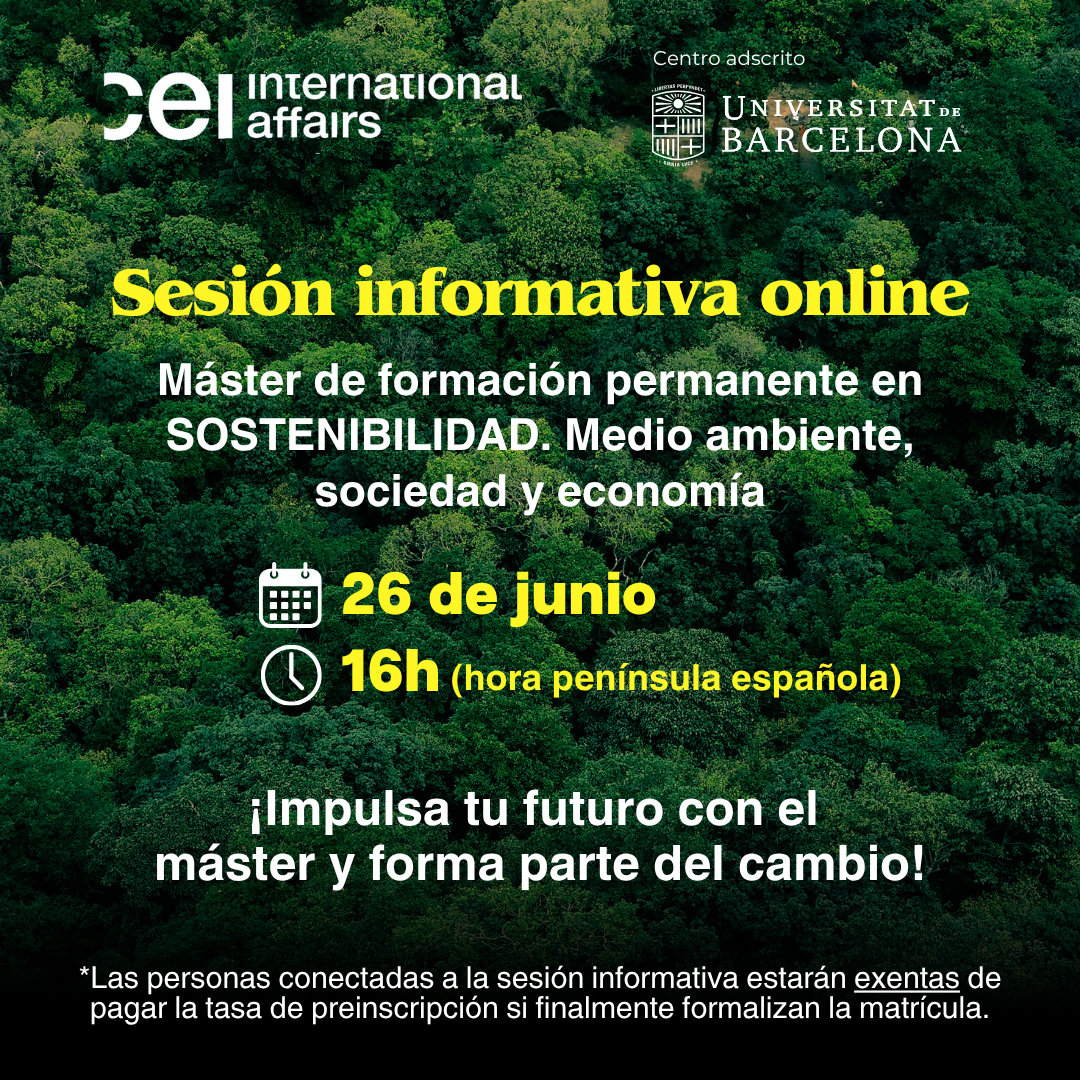Seminar “Quo Vadis Europa? Challenges and Scenarios for Europe in 2030”
The seminar “Quo Vadis Europa? Challenges and Scenarios for Europe in 2030” brought together leaders to analyze the major challenges the European Union will face in the coming years. The event addressed critical issues such as the energy crisis, geopolitical conflicts, the need to accelerate the green transition, and strengthening European competitiveness in a constantly changing global environment.


Among the speakers, Manuel Szapiro, Director of the European Commission in Barcelona, highlighted the need to rethink the European Union’s political model to successfully tackle future challenges. Oriol Escalas, Deputy Permanent Representative of Spain to the EU, explored the challenges the Union faces in the international arena. Ana Mar Fernández-Pasarín from the Universitat Autònoma de Barcelona and Jean Monnet Chair in EUPOL, EUGOV Research Group, delved into the EU’s role as a global actor and the importance of national governments in managing their European commitments. Finally, Fernando Guirao, Jean Monnet Chair in History at the Universitat Pompeu Fabra in Barcelona, concluded that the European Union is the essential collective tool to address future challenges.
The event was presented by Joaquim Llimona, Director of CEI, and moderated by Andrea Noferini, CEI Academic Director, who emphasized the importance of such meetings to strengthen a European integration model committed to addressing challenges with a forward-thinking vision.
The next seminar at the Palau Macaya, titled “Artificial Intelligence, Public Policies, and Gender Biases,” will take place on November 27. Registration is free and available at the following link:
https://palaumacaya.fundacionlacaixa.org/es/p/ia-politicas-publicas-y-sesgos-de-genenero_a169036920

